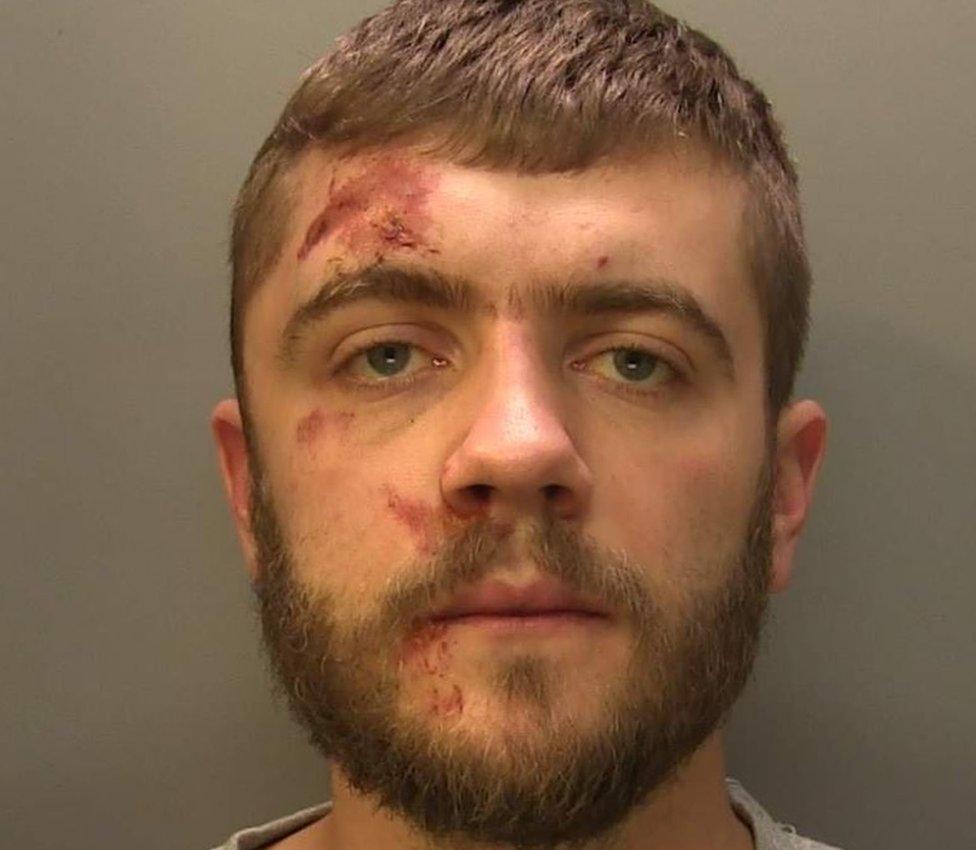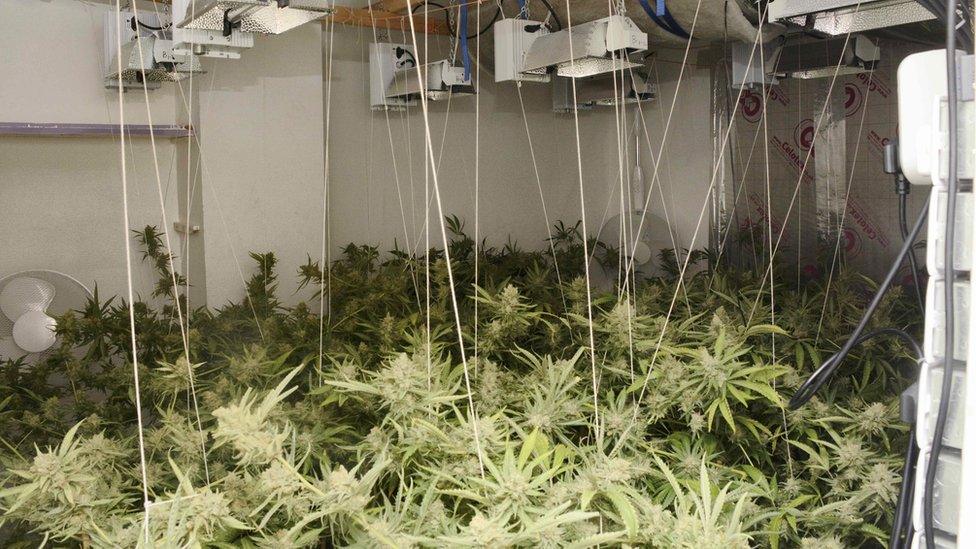Criminal's Bitcoin seized in Surrey Police first
- Published

Serejgs Teresko was jailed for more than nine years for money laundering and drugs offences
More than £1.2m worth of Bitcoins have been seized from a senior member of an organised crime gang.
Serejgs Teresko, 31, was kidnapped from a rented Virginia Water home in April 2017, where police found a large cannabis factory.
He turned up later and a search found a crypto currency wallet used to access a Bitcoin account in his Cobham home.
He was jailed for nine years and three months for money laundering and drugs offences.
Teresko had admitted money laundering, cultivation of cannabis and the possession/control of articles for use in fraud at Kingston Crown Court on 6 October.
Surrey Police said it was the first UK law enforcement agency to convert Bitcoin into Sterling and confiscate the money.

What is Bitcoin?
Unlike the notes or coins Bitcoin largely exists online.
Bitcoins are created through a complex process known as "mining", and then monitored by a network of computers across the world.
To receive a bitcoin a user must have a Bitcoin address - a string of 27 to 34 letters and numbers stored in a Bitcoin wallet.
There is no registry linking real names to addresses, which helps some Bitcoin users to protect their anonymity.

In April 2017 Teresko's partner and members of the public reported a man being "bundled into car" from a Virginia Water home which was found to contain a "large and sophisticated cannabis factory", Surrey Police said.
At his Cobham home they found cash in various currencies worth almost £263,000.

Police claimed back £64,000 in compensation for the owners of the rented home who knew nothing of the cannabis farm in their property
Teresko contacted police the following day to say he was fine, but refused to explain what had happened.
Following his arrest police found a keepkey device on which was stored £1.2 million worth of Bitcoin.
They also discovered a number of bank and credit cards in multiple names, counterfeit European identity cards, expensive clothes, watches, jewellery and gold bars.
Police were given permission by the Crown Prosecution Service to convert the Bitcoin into Sterling and confiscate it under the Proceeds of Crime Act.
On Thursday, a judge at Kingston Crown Court found Teresko had benefited from his criminal activity to the tune of £2 million and must forfeit nearly £1.45 million including the value of the Bitcoin.
The total value of the confiscation order was £1,447,935.70.
He must also pay an additional £13,150 within three months or face another 10 years in jail.
Det Insp Matthew Durkin said: "It appears Teresko was a member of an organised crime group and Bitcoin was one of the methods he chose to launder criminal assets."
- Published11 December 2017
